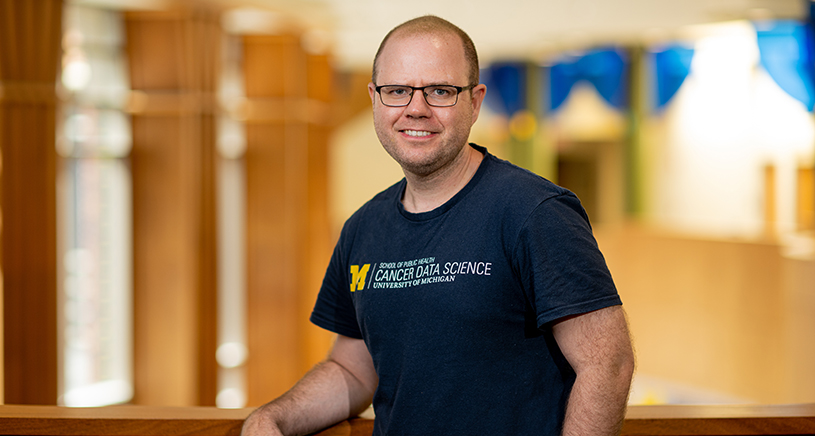Courses Taught by Nicholas Henderson
BIOSTAT607: Basic Computing For Data Analytics
- Graduate level
- Residential
- Fall term(s) for residential students;
- 1-3 credit hour(s) for residential students;
- Instructor(s): Nicholas Henderson (Residential);
- Prerequisites: No other courses
- Advisory Prerequisites: It is recommended that students with no programming knowledge co-enroll in Biostat 600 or contact the instructor to discuss the best options
- Description: This course is designed as a 3-credit modular course focusing on basic programming skills, including Python (1 credit), R (1 credit), and C++ (1 credit). The course covers key features of each programming language, data structures, basic data processing skills, basic data visualization skills (for Python and R), and basic UNIX skills. Students are allowed to take one or more modules according to the need basis.
- Learning Objectives: (a) To understand key features of R, python, and C++ programming languages in a modular way. (b) To understand basic data structures, basic data processing skills, basic data visualization skills (for Python and R modules), and basic UNIX skills
- Syllabus for BIOSTAT607

BIOSTAT629: Case Studies In Health Big Data
- Graduate level
- Residential
- Winter term(s) for residential students;
- 3 credit hour(s) for residential students;
- Instructor(s): Erin Craig, Nicholas Henderson, (Residential);
- Prerequisites: Biostatistics or Health Data Science students only
- Description: Being a project-based course, it integrates all competencies learned in HDS MS program to provide a culminating research experience. Students will work on two to three health big data projects, through which they learn to identify scientific objectives and analytical strategies and report findings through oral presentation and written documents.
- Learning Objectives: Students will learn how to identify a scientific goal of the project and to develop analytic strategies. Students will learn to integrate and apply quantitative skills to handle real-world health big data, including data modification and cleaning, data visualization and scalable computing. From presentations, students will improve their communication skills.
- Syllabus for BIOSTAT629


| Department | Program | Degree | Competency | Specific course(s) that allow assessment | BIOSTAT | Health Data Science | MS | Apply quantitative techniques commonly used to summarize and display big public health data | BIOSTAT629 | BIOSTAT | Health Data Science | MS | Apply descriptive and inferential methodologies according to the type of study design or sampling technique for answering a particular public health question | BIOSTAT629 |
|---|
